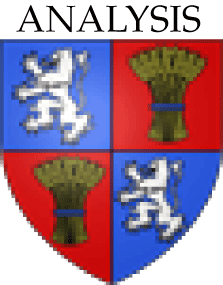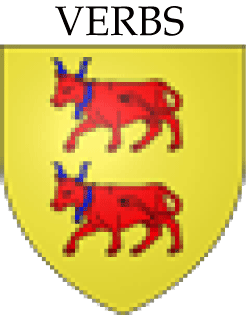The Descort of Raimbaut de Vaqueiras: Electronic Edition
Creation of machine readable version: Thomas Field
Conversion to TEI-conformant markup and verb tagging: Thomas Field
Source: Joseph Linskill. The Poems of the Troubadour Raimbaut de Vaqueiras. The Hague: Mouton, 1964.
-
This text, written by a non-native user of the language, perhaps to ridicule Gascon, is included for its historical interest. The manuscript tradition makes it an unreliable source for linguistic study, but the text does contain some interesting features.
Only the lines in Gascon from this poem have been included here: one entire strophe and two lines of the final strophe.
-
The edition is literary, not linguistic or diplomatic. For this section of the poem, Linskill has relied primarily on the Catalan Sg (Z) manuscript. As he points out (p. 191), it “consistently preserves the interesting Gasconism h- for f-.” It should be pointed out, however, that this orthographic trait is not part of the Gascon tradition in this period: in Gascon texts [h] is consistently represented by ‘f’.
Explanation of editorial principles
- Emendations and modifications have been indicated with an underline; a pop-up annotation provides the original reading and the name of the editor responsible for the change.
- Gaps of various kinds are indicated by [...], and a pop-up annotation furnishes an explanation, where one is available.
- Passages that are not in Gascon are indicated in blue.
- Passages whose readings are uncertain are italicized. Strike-throughs in the ms. are presented as such here, and scribal additions (in the margins, for example) are given as italicized text in brackets.
- Numbers in the left margin indicate page and line numbers in the original publication.
- To highlight the verbs that occur in the text and to make their analysis visible, click the “ANALYSIS” button.
RaimbVaqL.1 (copy), 54 words
Origin? (Occitania outside Gascony) late 12th c.
MS. Barcelona,
Biblioteca de Catalunya,
ms. 146,
mid 14th c.
193, 26 coar sotz la mes bon’ e bera
193, 27 q’anc fos, e gaillard’ e pros,

193, 47 Ma dauna, he que dey bos
193, 48 ni peu cap santa Quitera,

